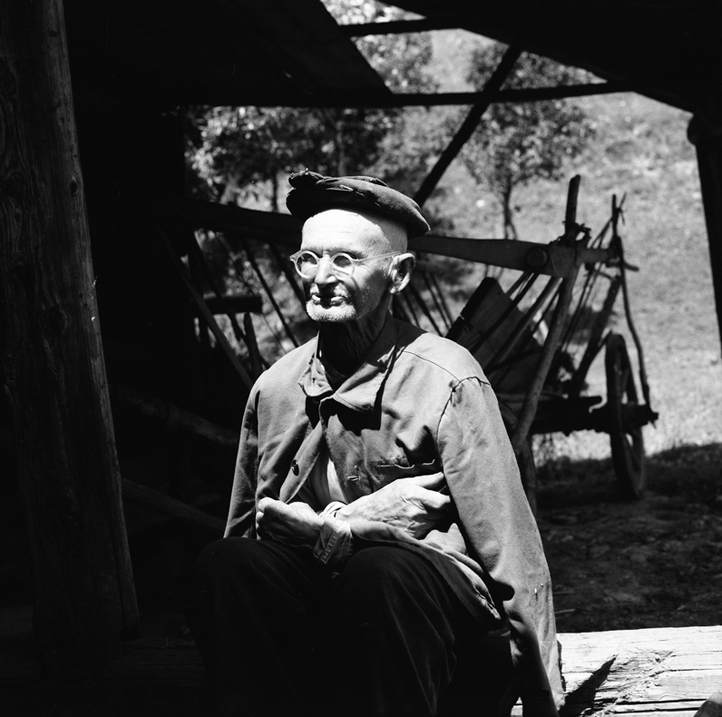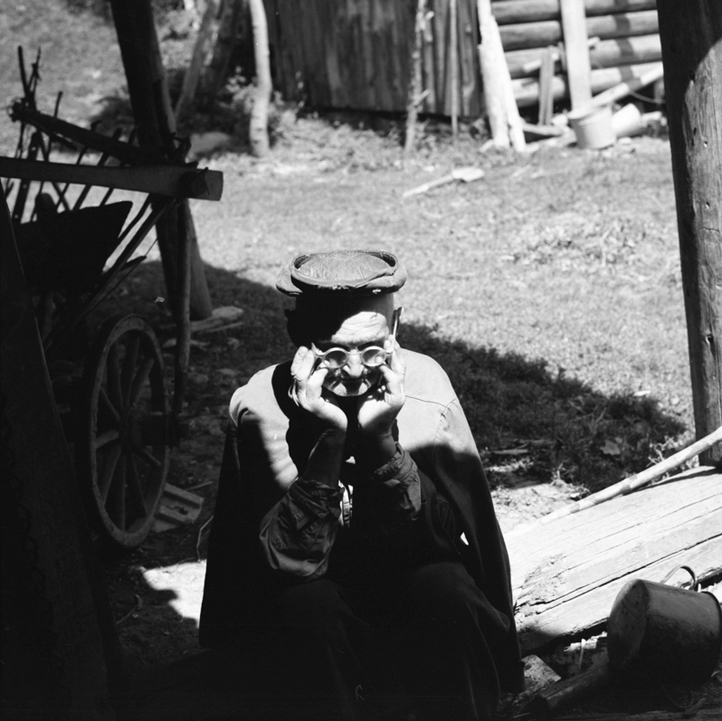Excerpt from a letter written by Zofia Rydet to Krystyna Łyczywek, Gliwice, October 23, 1967
A vast quantity of undeveloped rolls of film, but also a quantity of experiences, of discovering new and ever-different areas, people of all kinds, comparing the lives—particularly in our villages and those in Yugoslavia, Romania, and even Hungary (I was there in March).
My way of looking at the world expanded greatly, yet I increasingly came to feel as if we are all the same. I am now very interested in people and their homes. I saw and photographed the beautiful huts of Zalipie, near Tarnów—all colorful, painted with flowers—and the old and very beautiful wooden huts in Pieniny.


And then I was in the small houses on the banks of the Adriatic, where a person struggles through to be able to live from the earth and nature, which is so rich and beautiful there.

At the end I visited the old villages of Moldavia, where every village is decorated differently, and those of Romania, which are “terribly” clean.




Everywhere the kindest, most open-hearted hosts were the poorest, most simple folk. In Poland I was treated to sour milk and fruit, in Yugoslavia rakia and black coffee, in Romania gruel and slivovitz. I always left richer for some interesting stories, given not only small presents from the village, like apples, figs, and grapes, but, above all, a part of someone’s life.
Can photography, at least in part, render this, and though it is so splendid, can it arrest and keep everything that happens, can it extract and show human emotions so beautiful and interesting, so identical and yet different? Maybe you need a hidden tape recorder, maybe a film. If at least I knew how to write (like Steinbeck in The Pastures of Heaven—a must-read), how many marvelous and saddening, shocking, or maybe comical stories I could tell. Isn’t that seventy-eight-year-old man in a dilapidated hut in Jaworki fascinating? The one who put an ad in the newspaper for A WOMAN and waited for her a whole year with his simple bed covered with white sheets, perhaps his only sign of wealth, himself sleeping on a dirty bench and dreaming of the day SHE would appear and end his terrible solitude.


Or deep in the mountains of Yugoslavia, the absolutely photogenic couple, over seventy years of age, abandoned by their children who were raised on hard labor, who didn’t want to live struggling with nature—while those two convulsively cling to the infertile earth, scorched by the sun, full of rocks, whose tilling sucks their final strength; but they love their poor house, they have to live and die here. None of their ten children wanted to stay here, the city swiftly took them. They do not even remember their elders.
Or the old Romanian village woman, who has been raising her sister’s illegitimate child for years (her sister found a man in the town and her husband cannot know about this), dreaming that the boy (eighteen years old) will be a great man, maybe a doctor, perhaps a scholar. The hut was poor, small, full of books, full of books that were a total void to her. She sleeps in a small room, because her boy has to study. Though she is ill, she works hard from dawn till late at night to support him. And with the money she saves she is keeping a “dowry” for him, like a cape, a tapestry that is beautiful in its horrible ugliness, which she shows with pride, and which he will surely throw out.
None of this comes through in the photographs. These lives and millions of others, maybe even more interesting, pass by, and no one will know their power, their value, their heroism.